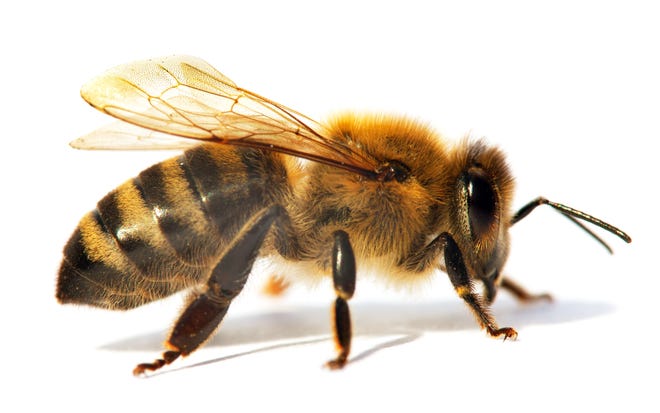Ask the Pharmacist: The best tips to avoid insect stings

Nothing can ruin a perfectly nice picnic or hike like an insect sting! It could lead to local discomfort, swelling, redness and pain. In fact, it could cause an anaphylactic reaction to those people who are truly allergic to an insect’s venom.
It’s not easy to train yourself to ignore them. It’s more likely you’ll make sudden movements and wave your arms or swat the air. I totally get it. Today’s article is to help you avoid a sting.
More:Ask the Pharmacist: Interesting new facts about leprosy and COVID-19
Don’t wear red! Red can appear to be very dark or black, a color bees and wasps associate with a predator, so they will go on the defensive and get angered. If you wear bright colored clothes, you could easily be mistaken for a flower. In fact, do not wear a flowery shirt because they’ll have to get up close to you to see that you’re not actually a plant!
I think your best bet is to wear neutral earth tones that make you blend in with the flora and fauna, such as beige, khaki, maroon, black or grey.

Here are some of the best tips to avoid getting stung by an insect:
- Avoid fruit-flavored lip gloss, shampoo or soap.
- Don’t walk up to their nest, they will defend it with their life!
- Do not wear perfume or perfumed deodorants.
- Do not use scented shampoo, conditioner or lotion.
- Dispose of soft drink cans and bottles because they attract bees. It’s sort of like sugar-water, and they love it!
- Bugs are partial to beer! Make sure you keep an eye out so one doesn’t crawl into your beer for a sip, and then you drink a mouthful!
- Make sure you’re clean. Some insects get ‘angry’ if they smell sweat.
- Wear long sleeves and long pants to cover as much as possible.
- Avoid bananas, this might attract bees because they think your food!
- Watch out if you are near discarded food or dog feces.
Wasps have a keen sense of smell and detest wormwood, peppermint, spearmint, eucalyptus and thyme. If you wanted to dab yourself with these essential oils, it might deter them from coming too close. For that matter, you could plant these in your garden to act as a natural insect repellent.
![Animal pollinators – bees, wasps, beetles, ants butterflies, birds, and others – perform the essential task of fertilizing plants. Without them, many plant species would decline or disappear, along with their oxygen-producing benefits, their erosion-preventing root systems, and the life-sustaining food they supply. According to the United State Forest Service, nearly 80% of the 1,400 [ … ]](/gcdn/media/2019/08/06/USATODAY/usatsports/247WallSt.com-247WS-566346-bee-on-flower.jpg?width=660&height=372&fit=crop&format=pjpg&auto=webp)
If you get stung, move away to safety quickly. Don’t worry about getting the stinger out in that moment, just get away. Bees can only sting a person once, but it will release a chemical that attracts other bees in the area. Wasps can sting repeatedly so if you get bit, run away from the space as quickly as possible.
Bees will leave the stinger in the skin, but wasps don’t usually do that. It’s best to scrape the stinger away from you with a credit card, or a letter opener or something like that versus a tweezer which might squeeze more venom into you. Usually hydrocortisone cream, calamine lotion or aloe helps with immediate first aid, however, some people need an antihistamine or numbing agent.
More:Ask the Pharmacist: The best natural antihistamines
Suzy Cohen is a registered pharmacist. The information presented here is not intended to treat, cure or diagnose any condition. Visit SuzyCohen.com.